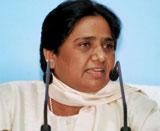
New Delhi, July 6: In a major relief to BSP supremo Mayawati, the Supreme Court on Friday quashed a nine-year-long disproportionate assets case against her and pulled up the CBI for initiating the probe against her without specific directions from the court.
The apex court said that the method adopted by the CBI was “unwarranted” and the agency proceeded against her without properly understanding its orders passed in the Taj Corridor scam.
A bench headed by Justice P Sathasivam clarified that the Supreme Court order pertained to initiating probe against state government officials in the scam and there was no such direction to lodge another FIR exclusively against Mayawati for allegedly amassing assets disproportionate to her known sources of income.
The apex court said there is no finding in the CBI’s status report of September 2008 that Mayawati had allegedly amassed disproportionate assets during the period 1995-2003.
“There is no material report of disproportionate assets case against the petitioner (Mayawati) in the Taj Corridor scam,” the bench said while referring to the probe agency’s status report.
The court further said that its order of 2002 was specifically pertaining to Taj Corridor case and there was no direction for lodging an FIR against Mayawati as was done by the CBI.
While reading out the operative part of its judgment, the bench observed there was “no such direction to lodge another FIR under Prevention of Corruption Act exclusively against Mayawati“.
“The CBI proceeded without properly understanding our orders”, the bench said, adding, “Method adopted by the CBI is unwarranted.”




Comments
Add new comment